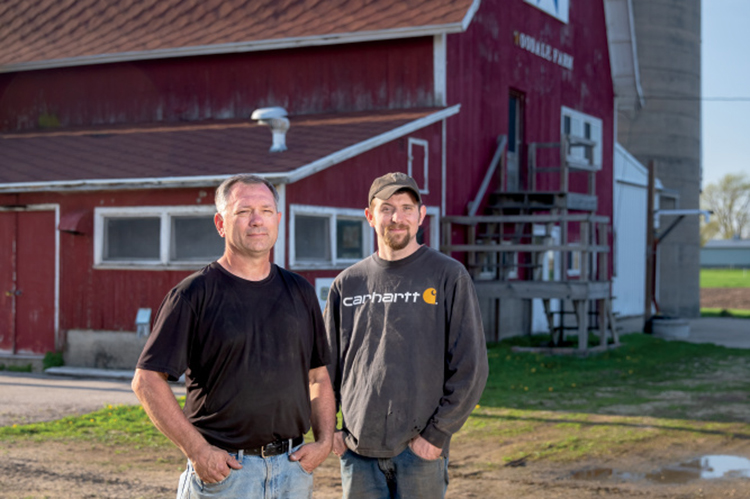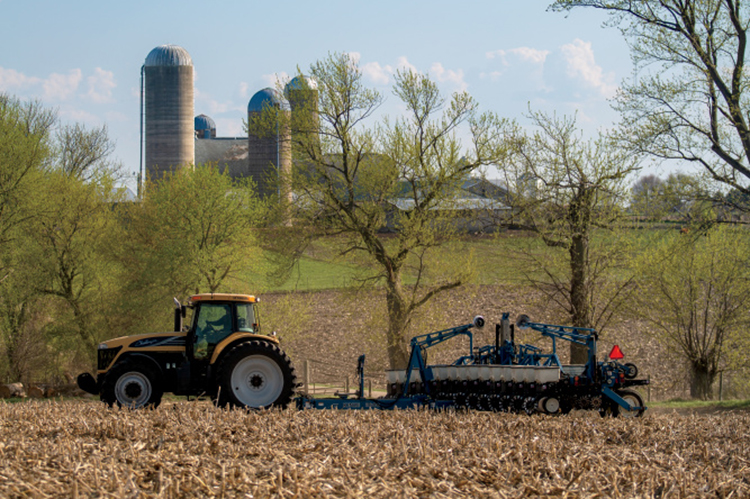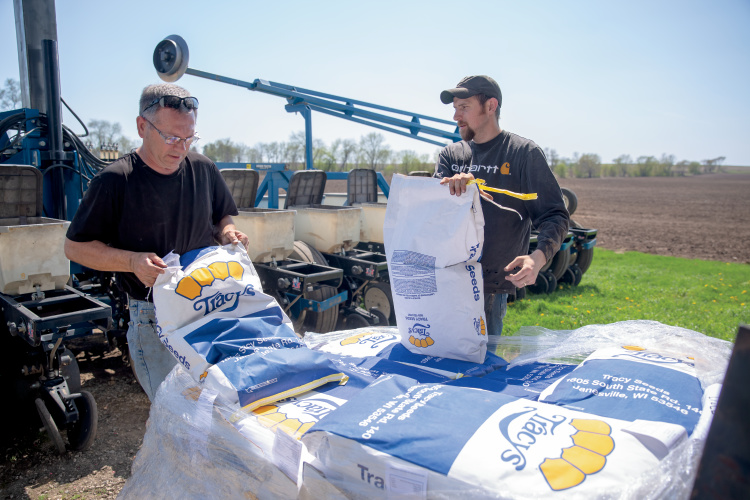Home > Wisconsin > Wisconsin Farm to Table > How Wisconsin Family Farms Build Long-Lasting Legacies
How Wisconsin Family Farms Build Long-Lasting Legacies
In partnership with: Wisconsin Department of Agriculture, Trade and Consumer Protection.

Wisconsin residents can find plenty to be proud of. It might be the opportunities for higher education, the beauty of the outdoors or another football season with the Packers.
But nothing exemplifies pride like the family farm.
“People here are so proud of their heritage,” says Jill Albanese, competitive exhibits director for the Wisconsin State Fair.
To that end, Albanese says, the State Fair has been officially honoring multigenerational farms in Wisconsin since the creation of the Century Farms program in 1948, the year the state turned 100 years old. An astounding 9,344 farms have been listed in the program, with recognition occurring each August during the Wisconsin State Fair in West Allis.
The Sesquicentennial Farm and Home Award was established in 1998 to honor family farms that are at least 150 years old, and 836 have so far been added to that list.
“To be honored, your farm has to be at least 100 or 150 years old and you have to have kept the farm in your family continuously,” says Albanese, who helps to oversee the two programs.

A Need for Family Farms
That certainly fits the description for the farms in Rock County owned by Kathy and Ronald Woodman and their son Joe Woodman. The older Woodmans live on the Sesquicentennial Farm, while Joe is on the corn and soybean farm that was added to the Centennial Farms list in 2017.
“I’m a big history guy, so obviously I think it’s a cool thing when a farm can get passed down along the same family for so long,” Joe Woodman says. “As far as the significance of it, it’s so hard to start farming these days, to get your foot in the door.
“We need family farms to continue for future generations, and not only farms being passed down, but also knowledge, the ways of doing stuff (on a farm).”
Woodman began learning how to farm when he was around 8 years old, helping feed the calves his father and grandfather were raising on their dairy farm.
“My dad would always be working with my grandpa, and I showed a lot of interest in it,” he says. “I would choose working on the farm over going to my friends’ houses.”
Now in his late 20s, Joe Woodman is a fifth-generation farmer. He has two college-aged siblings who have other interests and will likely find careers off the farm, but he and his wife hope to have children who will carry on the family legacy.
“We’d like to keep our farm in the family,” says Woodman, who also has a full-time job at Seneca Foods. “It’s harder and harder to find kids with an interest in farming. So that’s a goal of ours.”

The Whole Family Pitches In
Family is the backbone of the John Born farm, located in Sheboygan County and recently listed on the Sesquicentennial Farm and Home Award list.
A fifth-generation farmer in his early 60s, Born oversees a total of about 215 acres of alfalfa, soybeans and corn, as well as a herd of cows in a small dairy operation. His parents are in their 80s, but still stay involved on the farm, and his siblings pitch in as well.
“My dad is 87 years old and he still stays busy on the farm,” Born says. “He doesn’t do it because he has to, it’s just something that keeps him going.
“All the family members come to help out, just because of the love for what we have. It’s a family farm. They don’t come for a paycheck, they just come to help out. This is their home, too.”



